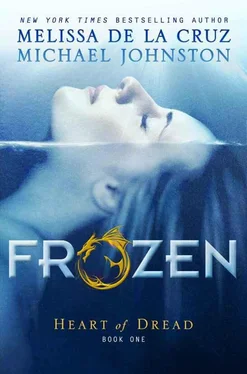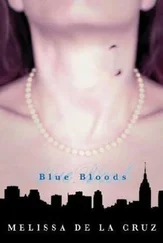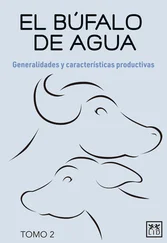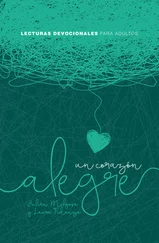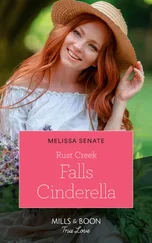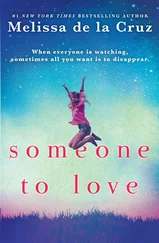I am the monster, she thought. The voice is mine.
THE VOYAGE BETWEEN
“God save thee, ancient Mariner!
From the fiends that plague thee thus!—
Why look’st thou so?”—“With my crossbow
I shot the Albatross.”
—SAMUEL TAYLOR COLERIDGE, “THE RIME OF THE ANCIENT MARINER”
SHE SHOULDN’T HAVE BEEN SO HARD ON him about his boat—Nat felt a little bad about that—because even with her inexperienced eye, she noticed that, like the LTV, Wes had improved upon its structure to fit its new environment. He had upgraded the hull, attaching layers of steel and carbon fiber paneling over the old aluminum shell, and every inch of the craft was painted—splattered, really—with shades of gray and black paint, a camouflage meant to mimic the dull sludge of the ocean.
The crew cabin was outfitted with bunks, the beds nothing more than metal mesh hammocks strapped to the walls, each with a blanket. The room next to it had a big plastic picnic table bolted to the floor, near a black charcoal grill. The ceiling above the grill was open to the sky, so the smoke could escape, and piled next to it were a few wood crates filled with food stores they had brought on board for the journey.
The ship offered little privacy and no amenities, but what else was new. Unless she was tossed in solitary, back at the center she had had a cot in the middle of a room the size of a gymnasium. She found a corner bunk that looked unclaimed and threw her pack on the rough blanket. She peeked through the dirty porthole. Outside, the gray sky was nearly indistinguishable from the gray waters of the Pacific. The toxic sea never froze but seethed with poison, occasionally glistening in the dim light of day, glowing in iridescent colors. It could be beautiful if it wasn’t so deadly, its shimmering waves swirling with clouds of orange and green, the waves dancing on occasion with slim wisps of fire, yet another product of the ocean’s unknown chemical cocktail.
She heaved herself up on the hammock and rested her head against the wire mesh. But after a while, she felt claustrophobic in the cabin and wandered out to the upper deck. She found Wes leaning against the rail, staring out at the dark water.
“Find something?”
He pointed to a distant spot in the middle of the ocean surrounded by large black ink dots.
“What are those? Island groupings?” she asked.
“No—those are trashbergs.”
“Trash—oh, like icebergs?”
“Made of trash, yeah.” Wes smiled. “The ocean’s full of them.”
Nat had seen it on the nets, how the pre-Flood oceans had once been flat and blue and empty. Now the Pacific was packed with junk, clouded with chemicals, dense and cluttered with trash, a floating Garbage Country. It was a briar patch, the perfect place to hide, the perfect place for slavers to loot and prey on pilgrims and refugees.
“Think we’ll make it?” she asked, almost as a challenge.
“Sure hope so,” he said, with that signature grin of his. “I need those credits.”
She smiled at that. “Sorry about freaking out about the boat earlier . . . I was just . . . anyway, it was rude of me,” she said.
“No harm done.” He smiled and scratched the scar on his face. She hadn’t noticed it before, the thin white line above his right eyebrow.
He must have noticed her staring. “Souvenir from Texas. I fell in the avalanche, and Shakes accidentally hit me with the ice pick while digging me out. I thought he was going to kill me instead of save me.” He laughed.
“Nice one.” She smiled, liking the way the scar made him look at once more dangerous and more vulnerable. “Sounds like that happens to you a lot. Bet your girlfriend wasn’t thrilled, though.” She wasn’t sure why she said it, but it came out before she could think.
“Who said I had a girlfriend?” he said, raising his scarred eyebrow. His dark eyes crinkled.
“No one,” she said.
“Well, I don’t anymore, if anyone’s interested.”
“Who’s interested?”
“Are you?” He looked her straight in the eye.
“I could ask the same of you,” she scoffed.
“So what if I was? Interested, I mean.” He shrugged.
“It wouldn’t be a surprise,” she said. “I’m sure half the crew has a crush on me.” She rolled her eyes. She wasn’t sure what she was doing, but it was fun to rile him up a little. So he was interested, was he? About time he admitted it.
“Only half?”
“Well, I don’t like to brag,” she said coyly.
They stared at each other and Nat felt the pull of those warm brown eyes of his, the color of honey and amber, playful and glinting. She faced him so that they were inches away from each other, their bodies almost touching. They were outside in subzero weather, yet she had never felt so warm.
“What are you doing?” he asked finally.
“Same thing you are,” she replied.
He shook his head. “Don’t start something you can’t stop,” he warned.
“Who says I want to stop?”
He stared at her and there was a long, fraught silence between them, and for a second she was scared to breathe. Wes turned to her, leaning down, his face so close to hers, it looked as if he was going to kiss her, but instead he changed his mind at the last minute. He wasn’t looking at her anymore; he was staring at the stone she wore around her neck.
He pulled away and looked back at the churning waters, tossed a pebble from his pocket into the ocean. “What do you want, Nat?” he asked.
“I could ask the same of you,” she said, trying to keep the hurt from her voice. Did he know about the stone? Why had he stared at it like that? You can’t trust a runner. They’ll sell you up the river for a dim watt.
He frowned. “Listen, let’s start over, can we do that?” he asked. “Why don’t you tell me something about yourself, something that’s not in the official records, something Farouk couldn’t dig up about you.”
“So you can get to know me, you mean? Why?”
“Why not? Like I said, it’s a long road ahead of us.”
Maybe he was lying and he did have a girl back in New Vegas. Maybe he had more than one. Or maybe he really only wanted to be friends. Nat couldn’t figure out which possibility bothered her more.
“Go on, tell me something,” he said. “Tell me about the first time you were in the Pile.”
“How did you . . . okay, fine.” She inhaled. “You’re right. I’ve tried to get out before. This isn’t my first trip through the G.C. I was an orphan, just like you’d guessed. I was living with Mrs. Allen then—the lady who raised me. It was her idea to try and get us out of the country when I was six years old. She wanted a better life for both of us, lost her faith in the RSA.”
Wes leaned his chin against his hands. “What happened?”
“The runner who’d taken all our money didn’t pay the right bribe at the first checkpoint, so after the guard waved us through, he called in the border police and we got hauled in for not having visas.”
“In our business, we call those donkey men,” said Wes. “Clueless guys who don’t know the deal.”
“They took her away, and I never saw her again,” Nat said softly. Mrs. Allen wasn’t her mother, but she was the only mother she’d ever known. Her eyes misted a little. “Mrs. A found me when I was a baby. She says I was a DFD,” she said, hugging herself tightly. Dumped for Deployment.
“Your folks were soldiers then.” Wes nodded.
“That’s what she told me.” Mrs. Allen had explained to Nat that it happened a lot, people leaving their kids, not wanting to take them wherever they were stationed, thinking it was kinder to leave them than to bring them to the front lines; abandonment as a form of love. “I guess they were army. I don’t know. I have no idea who they were.”
Читать дальше
